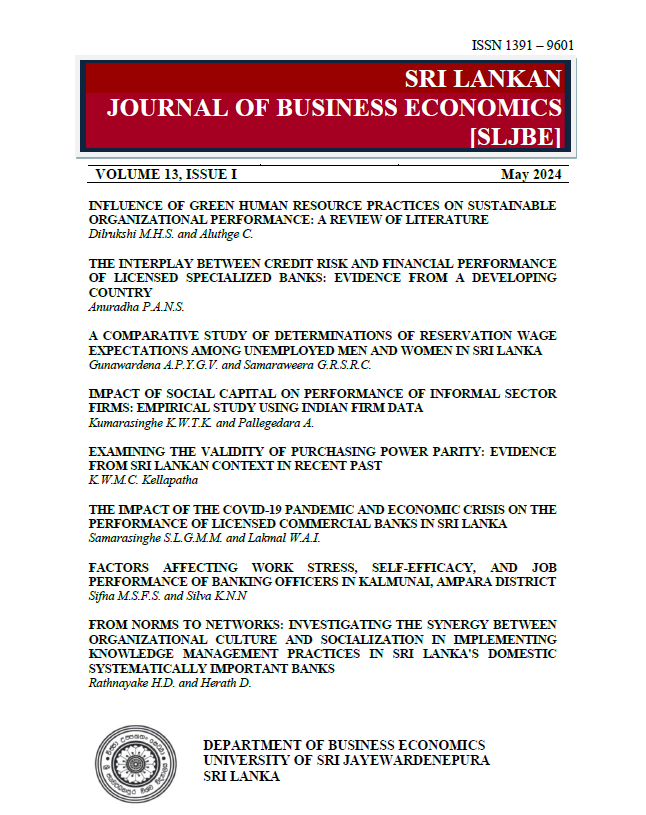INFLUENCE OF GREEN HUMAN RESOURCE PRACTICES ON SUSTAINABLE ORGANIZATIONAL PERFORMANCE: A REVIEW OF LITERATURE
DOI:
https://doi.org/10.31357/sljbe.v13.7503Abstract
The concept of “going green” has revolutionized business operations, leading organizations to prioritize social and environmental sustainability, including financial benefits. The Triple Bottom Line (TBL) theory’s three pillars of sustainable performance -economic, social, and environmental performance have also come to dominate contemporary business trends and have influenced the field of human resource management (HRM). Human resource management plays a crucial role in achieving sustainable organizational performance, with the enactment of green HR practices becoming a prominent strategy for aligning financial objectives with sustainable goals. This study aims to examine green HRM practices and their influence on achieving sustainable organizational performance to advance the ideology of green HRM and identify the research gap in this area. The study employed desk-based research using well-recognized academic databases such as ELSEVIER, Emerald Insight, Google Scholar, JSTOR, SCOPUS, etc. and extracted 66 articles using keywords such as green HRM, HRM practices, and sustainable organizational performance. The findings of the study extend that green recruitment and selection, green induction, green training, green rewards and compensation, and green employee discipline management significantly foster the green behavior of employees ultimately achieving sustainable organizational performance. This review contributes to the current literature on green HRM and eventually helps HR managers incorporate sustainability into their HR practices successfully.

